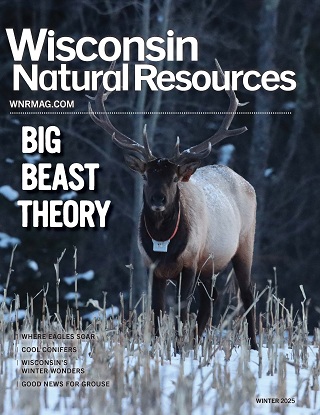Contact: Christine Haag, DNR Remediation and Redevelopment Program Director
Christine.Haag@wisconsin.gov or 608-422-1148
DNR To Host Online Listening Sessions Sept. 16 Regarding PFAS Deer Tissue Sampling And Other Investigation Activities In Marinette, Peshtigo And Surrounding Communities
MADISON, Wis. – The Department of Natural Resources is holding online listening sessions on Wednesday, Sept. 16 to discuss the state’s newly issued “do not eat deer liver” advisory for the area and to seek public input on PFAS contamination in Marinette, Peshtigo and surrounding communities. The meeting is the tenth in a series of 11 meetings the DNR will host for area residents.
PFAS (per- and polyfluoroalkyl substances) are a group of human-made chemicals used for decades in numerous products including non-stick cookware, fast food wrappers, stain-resistant sprays and certain types of firefighting foam.
In addition to routine updates regarding the status of the PFAS investigations in the community, the meeting will include:
- A presentation from Sean Strom, DNR’s environmental toxicologist with Fish, Wildlife and Parks. The presentation will include results from the February 2020 deer tissue sampling effort conducted in Marinette, Wis. and the resulting do not eat deer liver advisory in effect in Marinette, Peshtigo and surrounding communities.
- A presentation to discuss DNR’s plan to take on a lead role in the private potable well sampling effort in an area described as the Expanded Site Investigation Area in Marinette and Peshtigo, WI.
- A presentation to discuss recent surface water sampling results for Ditches A and B in Marinette and Peshtigo, WI, including sampling that was recently conducted downstream of treatment systems installed by JCI/Tyco in Ditches A and B in 2019.
The Sept. 16 sessions will take place online from 12 p.m. to 2 p.m. and from 6 p.m. to 7:30 p.m. No pre-registration is required. The sessions will be conducted using Zoom video conferencing, which the agency successfully employed in May and July as a result of the COVID-19 pandemic.
These contaminants have made their way into the environment through accidental spills of PFAS-containing materials, discharges of PFAS-containing wastewater to treatment plants and certain types of firefighting foams.
For more information on how to participate in the listening session, visit: https://dnr.wi.gov/topic/Contaminants/Marinette.html.

